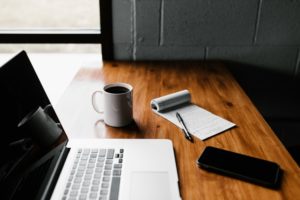The traditional method of studying at home is pretty simple: you get a textbook, open it, and dive into it. You stay away from the TV, phone, computer, or any other kind of technology. NPS Office Furniture In Townsville advises that it would be ideal if you could isolate yourself for hours in a home office or study, that’s fitted out with office furniture which is conducive of work. When you’re at home, you’re distracted.

It doesn’t sound attractive, does it?
Who wouldn’t love watching videos instead of reading textbooks for hours? You’ll still go through the textual material, but the resources you access through the computer will make it much more fun. Plus, a computer will help you develop effective study habits.
We’ll tell you how to use your computer for effective studying at home.
10 Tips: Use Your Computer for Effective Studying at Home
- Use the Right Programs for Papers and Presentations
Google Docs, Sheets, and Slides are free. If your professors don’t impose the need to use MS Office, you don’t have to pay for those programs. You can write your papers and create presentations in Google Drive.
- Block All Distracting Websites
You go to class, get at home, sleep, study, relax, and sleep again. If you have a job, your schedule is overwhelming. I’m sorry to say, but you don’t have time for distractions like Facebook and Instagram. You need to limit your time on those websites as much as possible Google Chrome extensions like StayFocusd and Strict Workflow enable you to do that.
- Get Help from Writing Services
Did you know that many people gain their degrees thanks to affordable dissertation help online? When they get unproductive with important assignments, they connect with professional writers and editors. You can do the same. Choose a reliable online service, and a tutor will help you overcome any obstacles throughout your studies.
- Access the Right Resources
You’re working on a challenging paper? Who has the time and nerves for traditional library research nowadays? You can find amazing resources via Google Scholar. You’ll impress the professor by linking to high-quality studies.
- Play the Right Music
Yes; there is such a thing as study music. It may sound weird at first, but give it a chance. You’ll find plenty of tunes with alpha waves on YouTube. Play them while studying and see what happens. In theory, this kind of music should help you focus.
- Find Inspiration for Academic Assignments
You have to work on a project, but you have no idea where to start? You can find great suggestions on history essay topics, informative speech topics, and anything else you’re working on. You can combine a few topics to come up with a unique one.
- Use a Note-Taking Program
When you write down your plans, you increase the chances to stay committed to them. Try a few note-taking apps or services to see which one you like. Most will give you a trial period for free. Choose an app that sends you notifications and reminders, so you won’t forget any of your tasks.
- Connect with Peers
Collaborative learning can be very effective when you’re not distracted. Unfortunately, it’s easy to get distracted when you get together with your friends and someone brings beer and pizza. When you connect over the Internet, you’re free from such risks.
Google Docs is great for collaborative work. It enables each participant to add content, and it tracks the changes. The chat feature is great for talking about the project.
- Start Your Own Blog
When you’re trying to learn something, getting in the position of an educator will inspire you to research more, and it will help you retain more information. Start a blog related to the most important course you’re taking. You’ll cover different topics as you learn more things. This project will keep you responsible.
- Watch Educational Videos
You don’t understand something from the coursework material? Find a video on Khan Academy or YouTube. There’s so much educational material that you’ll definitely discover something relevant. You’ll learn better through visualization.
College can be much more effective when you spice up the routine: wake up, go to class, get home, sleep, study, and party. The learning process is more fun when you infuse technology in it. Don’t look at the computer as a source of distraction. Sure; there’s Netflix, Facebook, Twitter, and Instagram on it. However, you also have endless sources of useful information. Limit the distractions and enhance the positive effects. You’ll be grateful you listened to that advice.
BIO: Elizabeth Skinner is a blogger focused on an unusual niche: studying. She loves learning, academic writing, and research in all shapes and forms. Her goal is to inspire students to study and write more effectively.

